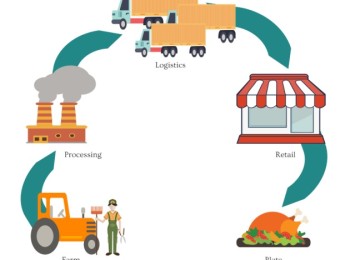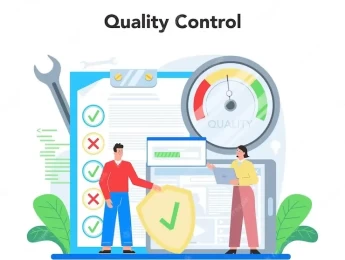Process innovation is crucial to a business's survival. To keep up with market trends, common practices, and industry standards, an organisation needs to have a strong focus on innovation. Without it, it is bound to quickly fall behind and be drowned out by more efficient competitors.
Process innovation is the process of creating and establishing new or improved practices within an organisation. These practices could relate to delivery, production, or support services. Various factors must be considered when it comes to innovation, and if even a single one is overlooked, the entire process may fail.
To successfully implement a process, a business will want to focus on process mapping. Process mapping is the method of documenting and planning innovation from start to finish. A process map will include all factors and their influence, any potential issues that could occur and solutions for them, and what may be wasted through the process. Different tools and techniques can be utilised when mapping to ensure the innovation can be thoroughly detailed and understood by anyone it may concern.
While process maps may initially seem simple, they do require a range of skills to be created effectively. Process mapping requires someone who can measure, analyse, and predict a business's future needs and is competent in using the necessary tools.
Upon completion of this course, participants will be able to:
- Understand business processes and their components.
- Apply process mapping, measurement, and analysis techniques.
- Define processes using a subset of Business Process Modelling Notion (BPMN).
- Assess different types of mapping tools and how they aid in process creation.
- Understand the importance of innovation.
- Diagnose the health of a business process.
- Utilise innovative techniques to improve business processes.
This course is designed for anyone responsible for innovation and process mapping within their organisation. It would be most beneficial for:
- Business Analysts
- Business Owners
- Operations Managers
- Project Managers
- IT Professionals
- BPM Project Leaders
- Quality Specialists
- Planning and Strategy Managers
- Innovation Managers
This course uses a variety of adult learning styles to aid full understanding and comprehension. Participants will review real-world process mapping diagrams to highlight areas of importance and recognise what information is ideal to include within them.
They will be provided with all the necessary tools to analyse process mapping examples and later create their own. It will allow the participants to develop a full and comprehensive understanding of the taught content and provide an opportunity for them to practice their physical skills. In group discussions, the participants will be able to share their process innovations and diagrams with one another and can offer and receive feedback. This allows the participants to practice communicating with others about their process, and help them identify any potential mistakes.
Day 5 of each course is reserved for a Q&A session, which may occur off-site. For 10-day courses, this also applies to day 10
Section 1: An Overview of Process
- Defining process innovation.
- Process approach to improvement.
- Process mapping and its benefits.
- What attributes are involved with process mapping?
- Techniques and tools used for innovation.
- The seven steps to achieving innovation.
Section 2: Processes Aligned with Quality Standards
- Comprehending process approach.
- Identifying process characteristics.
- Assessing the Plan-Do-Check-Act (PDCA) method.
- Analysing what processes take priority over others.
- Reviewing opportunities in terms of reducing cycle time.
Section 3: Process Assessment
- What type of mapping tools are most suitable to specforic processes?
- Advantages and disadvantages of different mapping tools.
- Utilising process hierarchy.
- The Integration Definition for Process Modelling (IDEFO) methodology.
- Non-Value-Added analysis.
- Review the eight types of waste found in processes.
Section 4: Process Analysis
- Customer-oriented process.
- Support-oriented process.
- Managing processes.
- Identifying a requirement for a process.
- The turtle diagram and its benefits.
- Utilising process maps to identify root causes.
- The 12 Cornerstone tools to process streamlining.
Section 5: Measurement and Benchmarking
- The importance of measuring processes.
- Failure Mode and Effect Analysis (FMEA).
- Problem-solving techniques.
- Process auditing as a tool for continuous improvement.
- Using KPIs to manage the performance of a process.
- Why setting targets is necessary for processes.
Upon successful completion of this training course, delegates will be awarded a Holistique Training Certificate of Completion. For those who attend and complete the online training course, a Holistique Training e-Certificate will be provided.
Holistique Training Certificates are accredited by the British Assessment Council (BAC) and The CPD Certification Service (CPD), and are certified under ISO 9001, ISO 21001, and ISO 29993 standards.
CPD credits for this course are granted by our Certificates and will be reflected on the Holistique Training Certificate of Completion. In accordance with the standards of The CPD Certification Service, one CPD credit is awarded per hour of course attendance. A maximum of 50 CPD credits can be claimed for any single course we currently offer.
- Course Code PO3-107
- Course Format Classroom, Online,
- Duration 5 days













